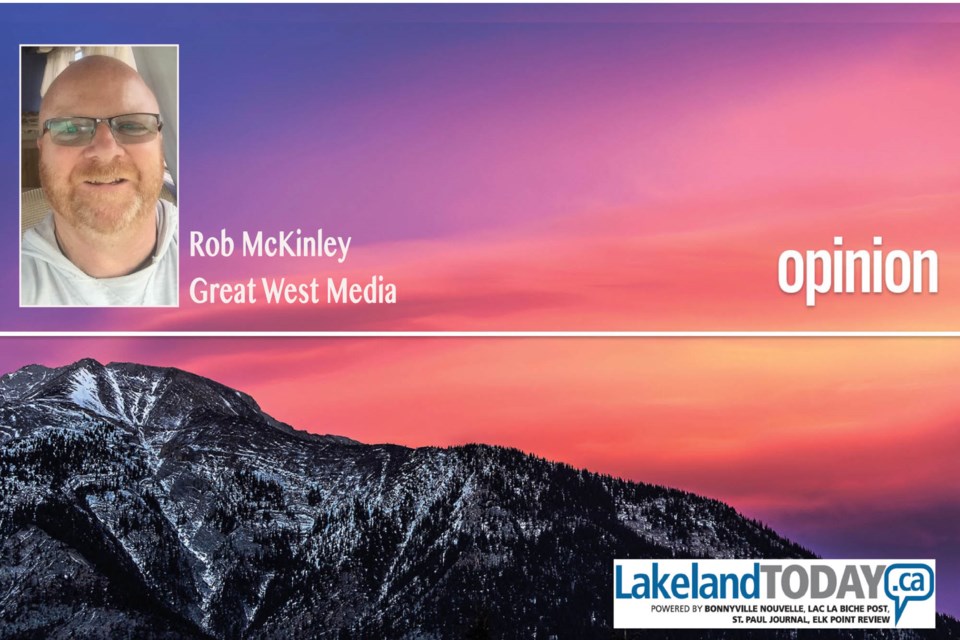It’s been a busy week of regional news and information.
Fire restrictions, COVID case jumps, homeless issues, just to name a few — plus all of the other interesting, wonderful, heartbreaking and “new-normal” things that have happened in our world, our communities and in our homes.
The coverage of some of those things in the last few days has shown us something we’ve known in the legitimate news industry for as long as mothers have been telling their children the same thing: Just because you can, doesn’t mean you should.
We’ve seen the age-old adage tested and stretched at recent so-called Freedom rallies, at the truly unfortunate removal of people from a homeless camp in Lac La Biche, and on the madness-magnet that is social media.
In a world where we are told every day to come together, to work together for the greater good, there are so many instances where that connectivity is intentionally broken. Rule-defiance and creating personal narratives to fit the situation has become more and more prevalent — and not just on the pages of social media, or from one-sided, opinion-based video-vigilantes with a phone on a stick and fact-less, predetermined storylines — but in the face-to-face world around us.
People don’t believe the pandemic is as dangerous as it’s being portrayed? Great. That is absolutely their opinion. Many people say they haven’t seen the death-toll first-hand, so they can’t believe the severity. Up until a few weeks ago, many people in our rural communities may not have known anyone who had contracted the virus. But that was then. Even a little over a week ago, as almost 100 people gathered to express their freedoms of not wearing masks or not following rules, the virus was spreading. All of Grade 8 in one Lac La Biche school is now on quarantine. Kids who were on school buses last week are now in ‘direct contact’ isolation. Kids can catch the virus — and they have in our own communities.
The freedoms to express your opinions is still there — but so are the facts.
Just because you can say what you think, doesn’t always mean you should. How is telling people what you think — despite a cascade of opposing evidence to the contrary — helping anything. At the very least, show some due diligence and include that contrasting evidence in your re-hash of events.
Why preach only one narrative when you know there’s more?
If the COVID-crisis is too polarizing to see the problem — how about fire?
There’s been a fire restriction in much of the provincial lands across the Lakeland since April 21. It’s not a fire ban yet — but we know people are already getting ready to get upset. “A fire ban on ‘May-long?’ How can they do that to us?” When further restrictions come into place — like the ones we have seen coming with the pandemic for months — people will still fight for their rights to a backyard fire. They will undoubtedly be complaining about government over-reach taking place, literally, in their backyards. Some will admit ignorance to knowing about the ban, losing it amid the babble and bluster of other ‘news-worthy’ events opined into facebook feeds and comment threads. Others will purposely defy the rules. Why? Because what are the chances their little fire-pit will light the spark that destroys a neighbourhood or injures a volunteer firefighter called out to deal with the aftermath of their oblivious decision?
What are the chances? Probably the same as we thought last week about our kids catching COVID.
Burying the facts, ranting opinions and blurring the lines is something anyone can do. But it doesn’t really help anyone. In fact, as we’ve seen this week in many communities, and on many issues across the region, it can really hurt and divide people.
“Just because you can…”
If the last part of that line to you is … “and I will because it’s my right,” well, that says more about you than about the rest of us.



